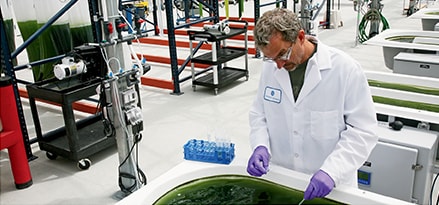
Understanding Total Acid Number (TAN)
What are the considerations or impacts of a Total Acid Number (TAN) test in compressor lubricants?
Generally speaking, TAN is a measure of acidic organic constituents that are present in lubricants. For used oil, TAN can increase as a result of the oxidation process that occurs during the service of lubricating oil. However, TAN is not used to predict the corrosive tendency of oils toward metals.
Lubricants used in rotary screw compressors and Roots blowers may be subject to high temperatures, which can accelerate the oxidation process. Mobil ServSM Lubricant Analysis uses two testing methods to measure the oxidation level of in-service oil. Fourier Transform Infrared Spectroscopy (FTIR) and/or TAN can be used as an indicator of oxidation levels in lubricants. The higher the TAN, the higher the degradation level of the oil.
Depending on the oil’s formulation, the compressor oil may be able to maintain low TAN for extended drain intervals, like Mobil SHC Rarus. Other fluids may experience a sharp increase in TAN shortly after they are put in service.


